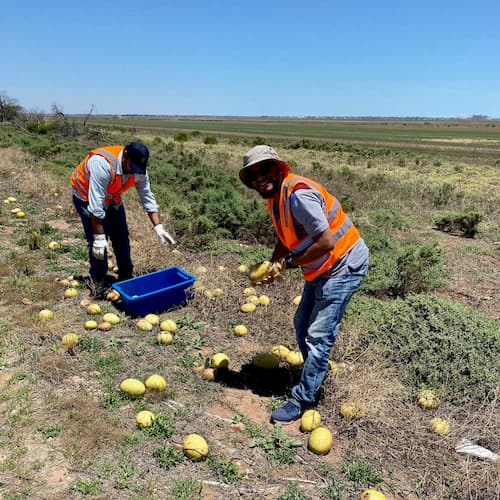ACOSS released today its proposals to restore full employment for this week’s Jobs Summit, including a bold plan to reform employment assistance through a Jobs and Training Offer for people unemployed long-term.
“We haven’t had full employment for the last 50 years. But with ambition and commitment we can create an economy where people secure the jobs and paid working hours they need, wages and other incomes – including jobseeker payment – are growing again, and no one is left behind,’ said Edwina MacDonald, acting chief executive of ACOSS.
“It will not be easy to keep unemployment low with inflation and labour shortages increasing, interest rates rising, and economic downturns among our trading partners.
“At the Summit we must work together with the government to tackle these problems together so that in future, people don’t have to worry whether their jobs are secure and we don’t leave almost a million people stuck on unemployment payments.”
The annual Jobs and Training Offer for people unemployed long-term, is a key proposal in the ACOSS position paper Restoring full employment: Policies for the Jobs and Skills Summit. The proposal turns the concept of mutual obligation on its head, scrapping ineffective programs such as and and putting the onus on Government to uphold its end of the employment bargain.
People re-entering the workforce would be supported through subsidised employment, paid work trials, vocational training and other substantial help to overcome each person’s barriers to employment.
Despite the high level of job vacancies, 760,000 people on unemployment payments have had to rely on income support as low as $46 a day for at least a year and 610,000 for more than two years.
Of the total 930,000 people on unemployment payments in March 2022, almost five in ten (47%) are over the age 45, four in ten live with a disability, 13 per cent are First Nations people and 12 per cent are carers of young children, reflecting structural discrimination and other barriers to employment such as lack of recent work experience or skills, that is best overcome by Government intervention.
“Now is the time to go the last mile and provide every Australian the opportunity for paid work,” MacDonald said. “Our existing policies are built on a harsh and rigid compliance regime more likely to humiliate or stigmatise people than provide them with real work opportunities.
“If we are honest with ourselves we would admit programs such as work for the dole are more about crude, punitive victim blaming than about actively connecting people with employment.
“An annual job and training offer turns this thinking on its head. It recognises that it is legitimate and desirable for Government to actively prepare people for work and connect them with opportunities.
“To lift people out of poverty and strive for full employment, it is critical that we have adequate income support so that people can cover the basics and search for employment. As part of Summit discussions to lift incomes, the lowest income support payments such as Jobseeker Payment must be increased from $46 to $70 a day.”
ACOSS is also calling for policies to grow jobs in industries of the future, including the development of a robust care sector to ease chronic labour and skills shortages. ACOSS proposes developing standards for accredited training and staffing levels that enable good quality care, investing in sector-specific skills and training, lifting pay and improving job security (with government commitments to fund the increases). Critically, the government should secure the public revenue required to meet the growing cost of care services through tax reforms, linking those with service guarantees where appropriate.
High level summary of ACOSS proposals:
- A shared commitment to full employment, and fairer ways to deal with inflationary pressures and labour and skills shortages than excessive reliance on higher interest rates or austerity policies, including by lifting productivity.
- A shared commitment to prevent and reduce long-term unemployment, including a flexible Jobs and Training Offer for people on unemployment payments for more than 12 months.
- Reform employment services to move away from the present harmful compliance approach towards genuine practical help to secure employment.
- Raise Jobseeker and related income support payments from $46 to $70 a day.
- Strategic workforce planning at national, industry and regional levels led by Jobs and Skills Australia.
- Immigration policies that prioritise skilled and permanent migration, and that protect temporary visa holders in entry level jobs (e.g. students, working holidaymakers, and Pacific Island workers) from exploitation and abuse.
- Restore sustainable growth in real wages by lifting productivity, renewing the links between productivity and pay, and strengthening enterprise bargaining.
- Lift minimum wages and establish a legislative link between growth in wages and Jobseeker Payments.
- Promote pay equity for women through workplace relations legislation and Fair Work Commission test cases.
- Promote a robust care sector with quality jobs and services through adequately funded standards for accredited training and staffing levels, investing in sector-specific skills and training, lifting pay and improving job security.
- Support the community services sector through funding that responds to need, meets the actual costs of quality services, and fair and consistent indexation.
- Invest in job-creating industries that reduce global warming and ease its impacts on people with the least, including clean energy industries in regions reliant on fossil fuel production to ensure a just transition, and retrofitting the homes of people on low incomes to improve their energy efficiency.
- Establish a standing Advisory Council to the Australian government comprising experts from business, unions, civil society, and academia to progress work across government and in partnership with the community to sustain full employment. This would be supported by time-limited expert commissions to advise on policies to resolve key challenges such as reducing long-term unemployment and labour shortages and job quality in care services.
Read







